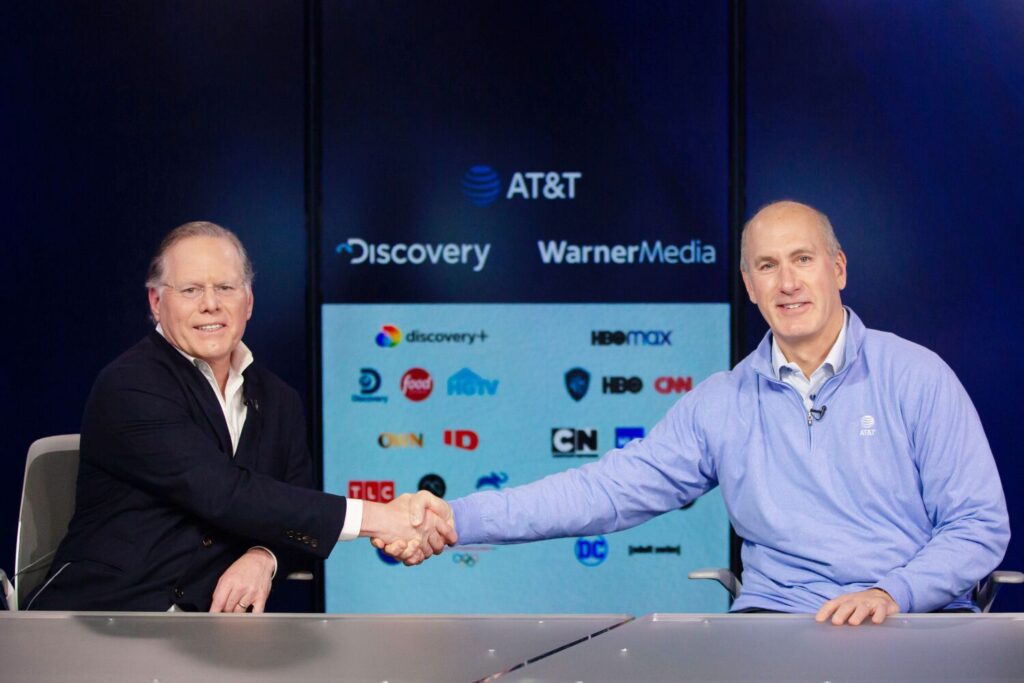Warner Bros. Discovery reports that it will incur up to $1.5 billion in costs to shrink the company, cancel programming and provide severance packages to laid-off workers, among other expenses.
In a Securities & Exchange Commission filing Monday, the company warned that “the estimated cash expenditures from the organization restructuring, facility consolidation activities and other contract termination costs will be in the range of approximately $1.0 – $1.5 billion.”
The costs will be spread over more than two fiscal years.
Executives, including CEO David Zaslav, have long signaled that they will pursue an aggressive cost-savings effort to achieve previously announced financial goals.
Zaslav, as part of Discovery’s consolidation of WarnerMedia, has promised Wall Street that he and his lieutenants will find $3 billion in annual cost savings after the merger.
Telecommunications giant AT&T decided to make a hasty exit from Hollywood, turning over its entertainment portfolio, including HBO, the Warner Bros. film and TV studio, CNN, TBS and Turner Classic Movies, among other properties, to Discovery in April.
Since then, the smaller Discovery has been struggling to swallow the larger company during an inopportune time as Wall Street has been treating streaming companies more skeptically. The renamed Warner Bros. Discovery has been grappling with a depressed stock price.
The transaction, which saw AT&T and Discovery shareholders receive Warner Media Discovery stock, saddled Warner Bros. Discovery with more than $50 billion in debt. Much of the debt was left over from AT&T’s takeover of the former Time Warner Inc. in 2018.
Since April, the company has let hundreds of employees go through multiple rounds of layoffs. In August, about 70 people were cut from its crown jewel, HBO — 14% of its staff. Earlier this month, more than 80 workers were let go from Warner Bros. TV studio. Cuts are expected at the film studio next month.
The New York- and Burbank-based entertainment giant also has canceled movies and TV shows, including dumping the $90-million film “Bat Girl,” sold much of its stake in the CW network and slowed some program orders.
Warner Bros. Television shut down its television workshop for emerging writers and directors, then quickly abandoned the closure amid outrage from those who complained that that move would be a major setback for women and people of color trying to launch careers in Hollywood.
During the second financial quarter, the company took about $1 billion in pre-tax restructuring charges.
Warner Bros. Discovery will report fiscal third-quarter earnings Nov. 3. On Monday, it told investors that report would include $1.3 billion to $1.6 billion in pre-tax write-downs, primarily related to content.
Ultimately, the company expects to incur between $3.2 billion and $4.3 billion in pre-tax restructuring charges through 2024, the filing said. Most of those charges have already been taken.
The company also is looking at ending contracts and consolidating facilities, which could lead to accounting charges of $400 million to $700 million, according to the filing. It is unclear which buildings the company plans to vacate.
Next year, Warner Bros. aims to consolidate its two streaming services — HBO Max and Discovery+ — but executives have not detailed the costs associated with that.
Shares closed Monday at $13.18, up 2.3%, although the stock has lost nearly half its value since the April merger.

